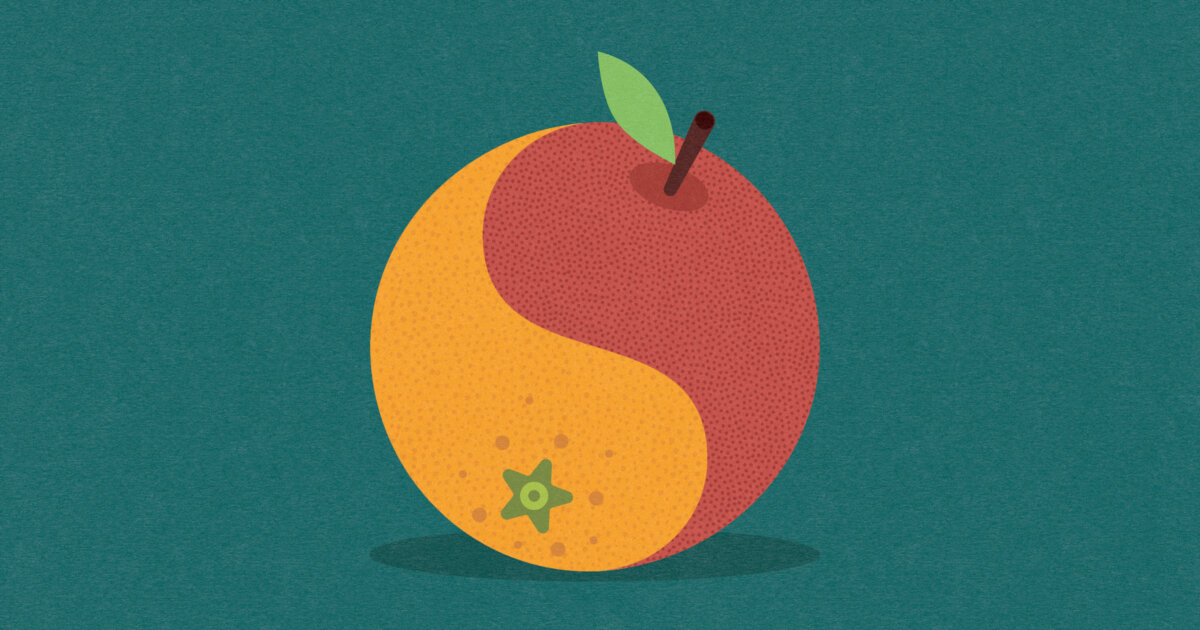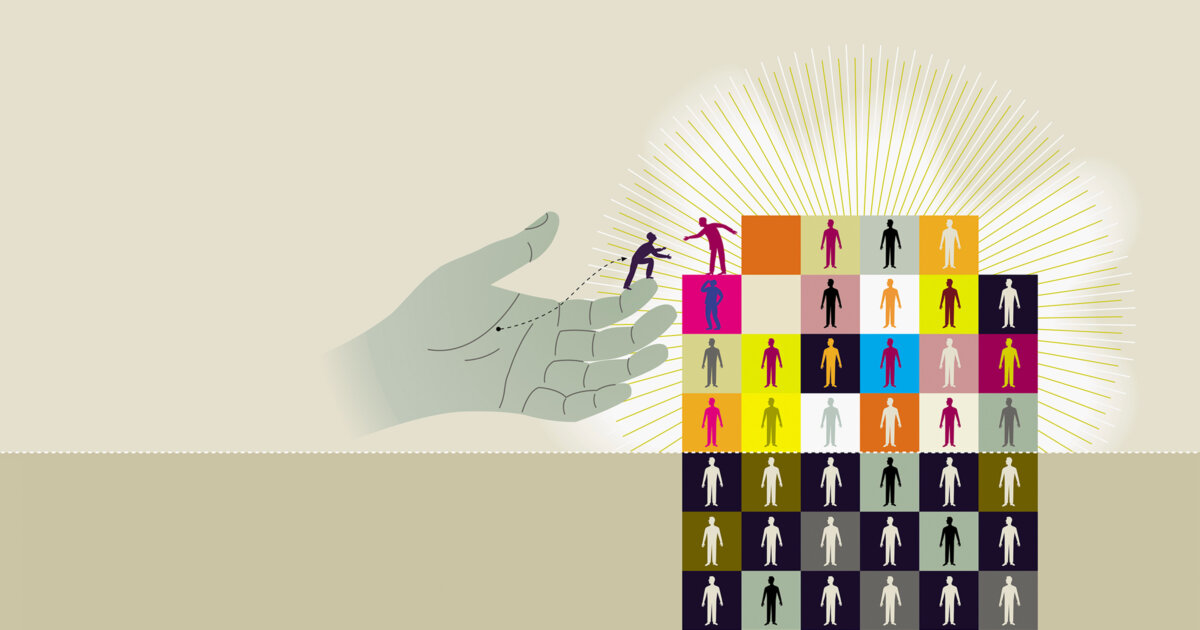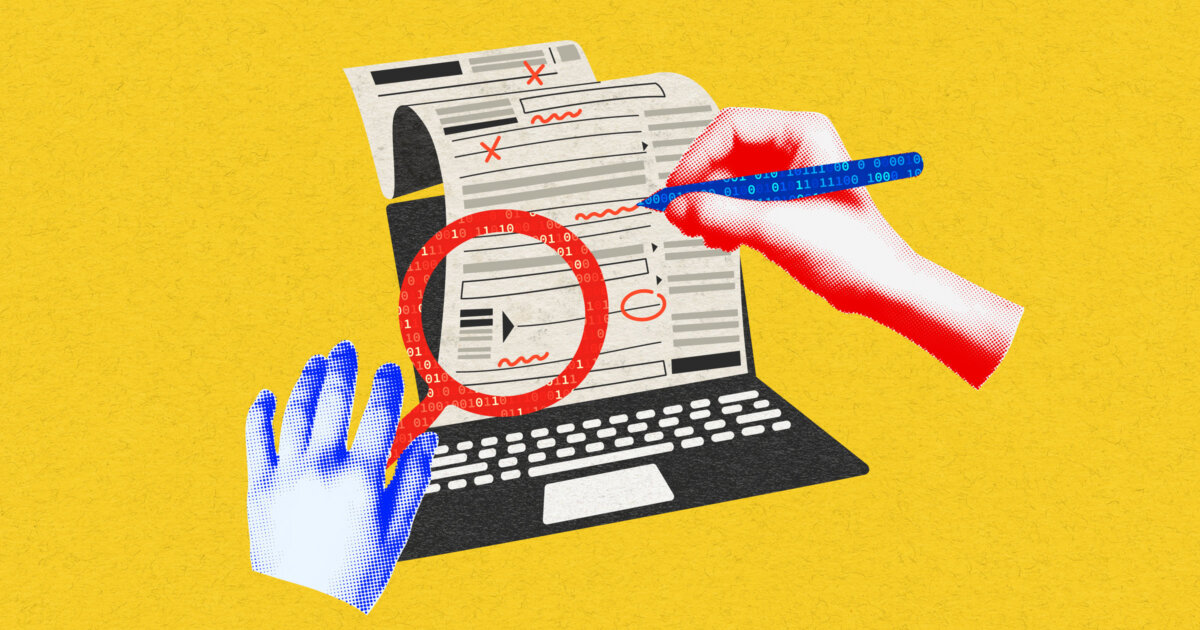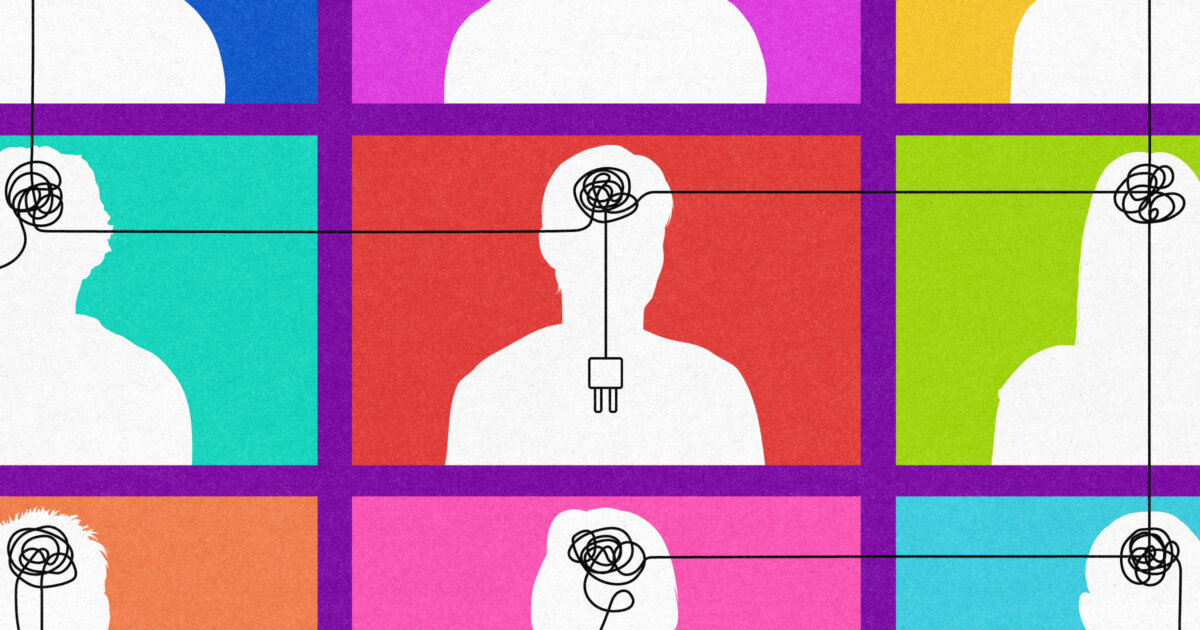A Better Way to Compare Yourself to Colleagues
Carolyn Geason-Beissel/MIT SMR | Getty Images As social animals, we constantly compare ourselves with other people. We compare our houses, our ideas, our successes. Naturally, the workplace is no exception to this pattern, and emerging research shows that these comparisons (even if they appear to be minor) can have real consequences for employees. Specifically, comparisons […]

Carolyn Geason-Beissel/MIT SMR | Getty Images

As social animals, we constantly compare ourselves with other people. We compare our houses, our ideas, our successes. Naturally, the workplace is no exception to this pattern, and emerging research shows that these comparisons (even if they appear to be minor) can have real consequences for employees.
Specifically, comparisons have been linked with self-deflation, leading to outcomes such as gossip, contempt, hostility, turnover, and a lack of happiness. For example, one study revealed that managers often compare themselves with (and envy) their own employees, which can result in abusive supervision. But comparisons can also be beneficial; for instance, researchers found a 10.9% increase in productivity when coworkers could compare themselves with and learn from others. Other research has found that whether an employee helps or harms a colleague who experienced a positive workplace event depends on whether they felt inspired by or envious of the coworker.
Given the potential traps and possible upsides of comparisons, how can people better navigate social comparison in the workplace? Based on our review of 131 research articles on the topic and the broader scientific literature, we offer three suggestions to keep in mind when it comes to making self-comparisons at work.
1. Take time to not compare.
Occasionally assessing how we’re doing in relation to others is a fundamental way to develop and grow — but there should be limits. Constantly scrolling on LinkedIn, repeatedly checking Slack, and always trying to find out the latest buzz about who knows whom and who did what can fuel dissatisfaction and a sense of grievance. Indeed, the frequency of comparing oneself with others who are doing better is associated with higher levels of anxiety and depression. The term chronic comparisons describes the habit of constantly making comparisons, which can lead to a life of anxiety, judgmental thinking, and self-doubt. One study of over 7,000 individuals showed that a “comparison orientation” — having the tendency to make social comparisons more often — is related to negative feelings like irritability, nervousness, shame, and distress.
Here’s a general rule of thumb: You’re naturally getting enough comparisons at work, and you probably don’t need to add more. One approach to minimizing the tendency to constantly self-compare is to limit the amount of information you take in — a key ingredient of comparisons — by disabling notifications for the morning, reducing your time at the watercooler, or not seeking out information about colleagues. One interesting research project uncovered a significant negative correlation between seeking out information about others’ pay and pay-level satisfaction; in other words, snooping around for this information results in you being less happy with your own pay.
Knowing what type of information to take a break from is a bit of a paradox: The more you care about something (pay, physical beauty, seeming smart), the more likely it is that information on the topic will trigger a comparison, because it is relevant to you. Comparisons are most damaging when we cannot control the situation — like comparing ourselves with someone who was born into a richer family. Feeling stuck in an inferior situation is more likely to trigger feelings of envy, for example. Thus, if you cannot change or improve on the dimension, then having the information (and subsequently making a comparison) is more likely to be damaging and should be avoided whenever possible.
2. Compare with the goal of improving.
It’s also important to focus on making the right comparisons. Unfortunately, studies indicate that employees compare nearly everything at work, including compensation, flexible work arrangements, their relationship with their boss, awards, and much more. In short, it seems that almost nothing is off-limits when it comes to comparing ourselves with our colleagues.
Not all comparisons are created equal; they should be strategic, not arbitrary. That means making comparisons that provide useful information or developmental feedback. For example, seeing how another colleague is able to get their work done more quickly may reveal insights on how you can be more efficient. There is a reason why rivalry is related to performance: We often need someone else to push us to improve.
But here is an important caveat: Research implies that we need to want to improve. Simply admiring someone (rather than wanting what they possess) does not lead to increased performance. To be strategic, make comparisons when you’re ready to make a change. Don’t proactively compare yourself with a colleague on performance unless you’re comfortable learning a new skill or adopting a new technique — otherwise, you may just become less satisfied with your current situation. After all, social comparisons have been described as an “upwardly mobile process.”
3. Compare yourself to the right people.
Choosing whom to compare yourself against isn’t as easy as it sounds. A case in point: People routinely use their closest friends as a source of comparison, whether or not they’re good referents. Likewise, if we want to feel that we’re good people, we’re prone to compare ourselves with those whose behavior is worse than ours. When we feel powerful, we’re less likely to respond to comparisons; when social comparisons reveal unfavorable information, we tend to ignore it. Sometimes we keep comparing ourselves with the same person repeatedly; at other times, we switch. In general, we all too often make arbitrary or self-serving comparisons, which is problematic.
A balancing act is required when choosing the right person as a referent. Research suggests that if you compare yourself with someone who is slightly better at something, you’ll work harder than you would if you were to pair yourself with someone who has equal or superior abilities. In other words, picking the right person can be motivating, but you need to be careful or it may backfire. When it comes to happiness, for example, research suggests that you’re better off winning a bronze medal in the Olympics rather than silver. The underlying logic is that the person who wins a silver medal is left thinking, “I almost had the gold,” whereas the third-place finisher is thinking, “At least I won a medal.”
Ultimately, choosing good referents can help us better ourselves. Specifically, developing self-efficacy (a person’s belief in their own ability to perform) is important, but that can be difficult in a vacuum. One way to gain more confidence is to observe the successful efforts of others who are like you. Put simply, constructive and thoughtful comparisons can help us become more than we would have been otherwise. After Roger Bannister ran a mile in under four minutes, others soon broke his newly set record. Having the right comparison target clearly changed the way in which runners approached what was once thought impossible.
From resources to rewards to relationships, organizations are fertile ground for social comparisons — which can be a source of development or distress. Aim to make comparisons that will facilitate rather than hinder your personal and professional development.






























































































![Building A Digital PR Strategy: 10 Essential Steps for Beginners [With Examples]](https://buzzsumo.com/wp-content/uploads/2023/09/Building-A-Digital-PR-Strategy-10-Essential-Steps-for-Beginners-With-Examples-bblog-masthead.jpg)



![How One Brand Solved the Marketing Attribution Puzzle [Video]](https://contentmarketinginstitute.com/wp-content/uploads/2025/03/marketing-attribution-model-600x338.png?#)






![How to Use GA4 to Track Social Media Traffic: 6 Questions, Answers and Insights [VIDEO]](https://www.orbitmedia.com/wp-content/uploads/2023/06/ab-testing.png)







![[Hybrid] Graphic Designer in Malaysia](https://a5.behance.net/920d3ca46151f30e69b60159b53d15e34fb20338/img/site/generic-share.png)
























